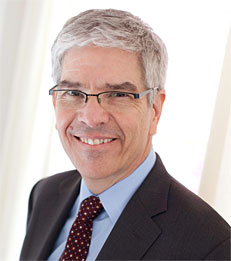
In this century, new technologies can raise living standards at the fastest rate in human history. This outcome, however, is not preordained. It will happen only if our rules keep up with our technologies and the proliferating web of human interactions that these technologies make possible. The rules that structure social interaction can take the form of laws enforced by a legal system or norms enforced by individuals in the society. Constraints on human prosperity will come from neither scarce resources nor limited technological opportunities; if we falter, it will be because of our limited capacity for developing new and better forms of both types of rules, those captured in our laws and those captured in our norms.
The people who live in the poorest countries on earth are the ones who suffer most obviously from ineffective rules. Their most pressing task is to find ways to adopt rules that are already known to work much better—rules that would keep them safe and allow them to access the prosperity generating technologies that exist elsewhere in the world. To reduce global poverty, leaders in the developing world need to find mechanisms that allow people to experiment with better systems of rules.
The people who live in the poorest countries on earth are the ones who suffer most obviously from ineffective rules.
Changing the rules is a difficult task. When people are accustomed to living and working under a certain system of rules, not everyone will be open to change—it may take decades to build sufficient consensus for reform. Although efforts of this sort are critical to human progress, leaders should also explore complementary alternatives to the process of reform by consensus. Designing new systems of rules and letting people choose whether to opt-in would be one such complementary approach.
Historically, the ability to move between countries in search of better opportunities—to vote with one’s feet—was a powerful force for progress. While modern globalization offers greater mobility of capital, goods, services, and ideas, restrictions on the mobility of people keep many people from leaving ineffective systems of rules for better ones. Moving forward, creating new places with better rules and letting people opt in could offer an important supplement to the familiar process of reform by coercion or consensus.
Because of accidents of history, the British brought to Hong Kong laws and norms that supported a market-oriented economy. They administered this small piece of Chinese territory, and many Chinese people opted into the new set of rules that prevailed there. Later, the Chinese government deliberately established the nearby city of Shenzhen, adopting market rules similar to those that prevailed in increasingly prosperous Hong Kong.
Shenzhen grew up as a special reform zone within an existing nation. The city’s administrators were accountable to the Chinese government, but the rules they enforced were very different from those that prevailed in other Chinese cities at the time. Notably, the rules in Shenzhen allowed foreign firms, people, and technologies to work and prosper with locals under the rules of a more market-oriented economy. Many people chose to opt into the new rules in Shenzhen, which grew very quickly from an area with very little population to an urban area of approximately 15 million people.
The key challenge for leaders in the developing world is to find mechanisms that encourage productive reforms—reforms that will allow relatively poor countries to catch up with or surpass the relatively rich.
The success of special reform zones like Hong Kong and Shenzhen suggest that human progress comes not just from the discovery of new technologies, but also from the implementation of new and better rules. In both cities, the ability to experiment with new rules fostered evermore beneficial forms of human interaction. The key challenge for leaders in the developing world is to find mechanisms that encourage productive reforms—reforms that will allow relatively poor countries to catch up with or surpass the relatively rich. Giving people the chance to opt-in to reform zones may be the fastest way for developing countries to adopt new systems of rules and establish cities that can drive economic progress in the rest of the country.
